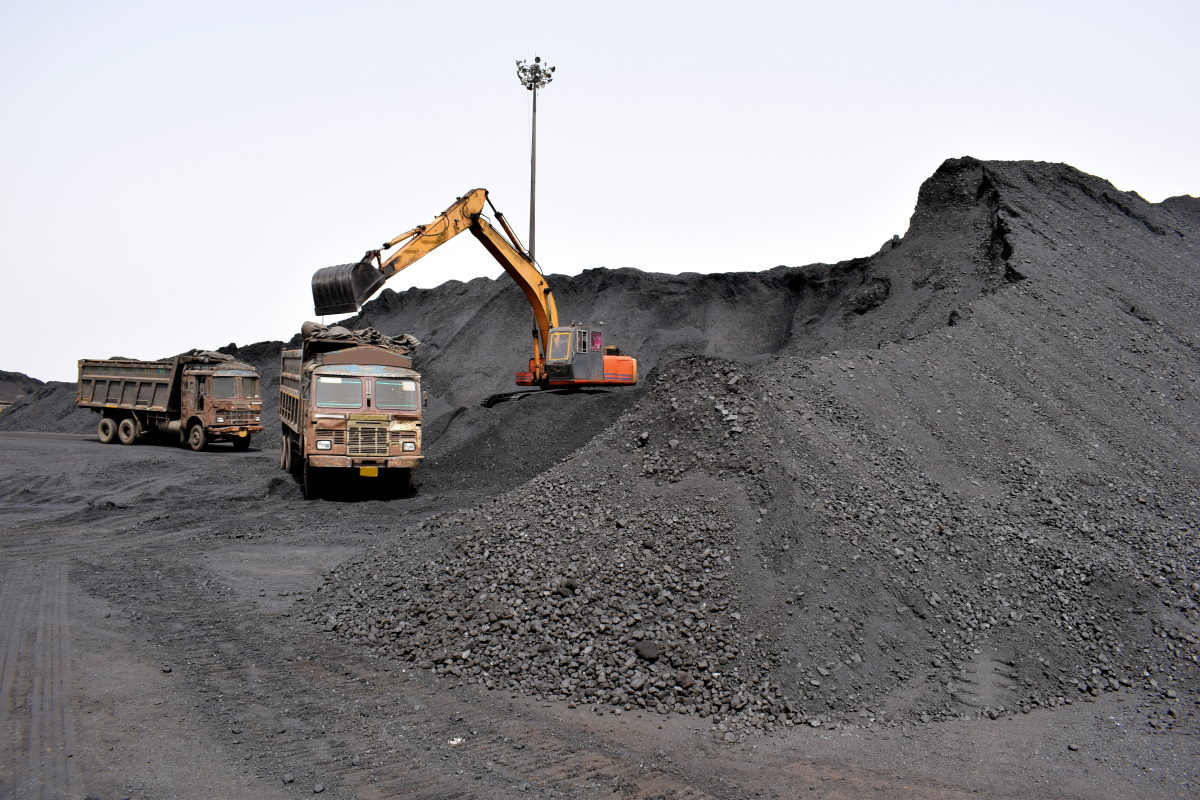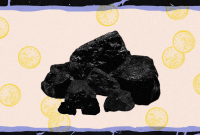Support strong Canadian climate journalism for 2025
As out-of-control, climate-fuelled wildfires burn in western Canada and elsewhere across the country, the Port of Vancouver steadfastly continues to serve as North America’s export hub for one of the most climate-damaging fossil fuels: coal.
There is a dangerous mismatch between words and deeds when it comes to coal in Canada. Now is the right time for this government to ban thermal coal exports, for the benefit of people and the planet.
The federal government rightfully acknowledges thermal coal — the type used for electricity generation — as a uniquely dirty and dangerous source of energy, so much so that the entire country is phasing out its use through legislation.
Yet despite a 2021 Liberal promise to end thermal coal exports in Canada no later than 2030, they have nearly doubled under the current government’s watch. More than half of this is American coal, ironically banned for export from multiple US ports due to its climate and environmental harms.
We must urgently adjust course. For this reason, NDP MP Laurel Collins’s recently announced private member’s bill, Bill C-383, aimed at meeting the government’s own stated goal of prohibiting thermal coal exports from Canada, deserves to see multi-partisan support and quick passage. Besides the Liberals, the idea of a thermal coal ban has also been backed by the NDP, Greens and Bloc Québécois.
Using Canada’s experience as a guide, this bill would be a major win for climate and health. Just a few short years ago, Canada’s electrical grid was dominated by coal-fired power. Coal played a major role in electrical grids from Alberta to Ontario to Atlantic Canada, with disastrous effects for the environment and health.
On the climate front, coal is typically ranked as one of the dirtiest fossil fuels. While coal and its fossil cousins oil and gas all generate climate-warming carbon pollution, coal when burned generates much more carbon dioxide per unit. In 2021, thermal coal constituted the single largest contributor to climate change worldwide.
Perhaps not surprisingly then, when Canadian jurisdictions first moved to regulate, then fully phase out coal, this led to major reductions in greenhouse gases. Canada-wide, the coal phase-out dropped electricity sector emissions 52 percent between 2005 and 2020, and is slated to eliminate more than 12 million tonnes of greenhouse gas pollution by 2030. In a laudable effort to export successful ideas, Canada is a co-founder of the global Powering Past Coal Alliance, and works closely with other countries to phase out coal.
The health case for a full phase-out is equally compelling. When burned, coal is a major source of air pollution, contributing to respiratory and cardiovascular disease, systemic inflammation and neurodegeneration. Coal has been linked to health impacts such as asthma, breathing difficulties, brain damage, heart problems, cancer, neurological disorders and premature death. The health risks of coal can extend well beyond the people and animals first impacted. Thermal coal contains significant amounts of mercury, which can threaten the development of unborn babies, and accumulate in bodies and aquatic food chains.
It’s for reasons like these that Canada banned new thermal coal mining projects and project expansions in June 2021. Then-Environment Minister Jonathan Wilkinson was clear: “Eliminating coal-fired power and replacing it with cleaner sources is an essential part of the transition to a low carbon economy, and as a result, building new thermal coal mines for energy production is not sustainable.”
The contradiction between this government’s laudable statements and current export policy is jarring. If coal isn’t good enough for Canada, why should it be good enough for anyone else? And since, as Prime Minister Justin Trudeau has stated, “the atmosphere does not care where carbon was emitted,” why should Canada profit from exporting the most polluting fossil fuel on earth?
These inconsistencies don’t end with the federal government. Despite hosting some of the largest coal export facilities on the continent, the Port of Vancouver somehow purports to be on a journey to become the world’s most sustainable port.
A ban on thermal coal exports won’t immediately stop the wildfires raging across western Canada, but it will be one more step towards addressing their root cause. It will also align one key piece of Canada’s economic policy with its statements and actions in the areas of climate and health. The time for declaring one thing on coal while doing another is over. Bill C-383 provides an excellent opportunity for all parties to come together to support a new direction from Canada that will protect people and the planet.
By Dr. Melissa Lem, Vancouver-based family physician and president of the Canadian Association of Physicians for the Environment and Dr. Joe Vipond, emergency physician and past-president of the Canadian Association of Physicians for the Environment







Comments
I am all for banning coal exports and of course domestic use.
As a matter of interest though, last night Trump's VP pick J.D. Vance sure seemed to be advocating for America to become an energy (my word) "juggernaut" and ramp that goal up by putting back to work workers that increase the business of coal extraction (said it without daring to say the word coal) for domestic use and presumably export. It is fair to say that gas and oil fall under the same MAGA umbrella. The rationale used by him was essentially rather than buying energy from "tin pot dictators" they would instead enrich Americans by "producing it" in America. To boot, they could they could keep their gasoline cars 'cause DJT wan't going to "make them drive an electric".
The cost in air pollution, environmental destruction, and GHG emissions were bulldozed over ie. scoffed at by not even mentioning.
Now, if the aforementioned line of reasoning sounds familiar up here in Canada, it should.
It is already a part of the exact same rationale that Pierre Poilievre has been talking about as he, pardon the pun, "warms up" his easily led base. Expect and be prepared for P.P. to ramp up the same rhetoric and rationale as J.D. Vance hawked to the MAGA faithful in the CPC platform and his always grating talking points, come official election time. Who says the MAGA movement hasn't already been adopted up here?
Not me for sure but I think that over the last few years, the usual go big or go home spectacle unfolding in U.S. politics has been a tough "act" to follow-- a three ring circus with Trump as ringmaster has sucked up the lion's share of attention to the topic.
It's a perfect smokescreen for our own rather embarrassingly derivative version to grow and prosper here in Canada.
I keep hearing this too, that it's not "as bad" up here, but the provincial premiers, mainly conservatives, have just met and united behind, wait for it, Denial SMITH FFS, in her assessment that "equalization" is yet another federal policy that's "broken" and needs to be "phased out" AND the hostile premise behind THAT, which is that the federal government needs to "stay in their lane!"
What in hell is wrong with David Eby, Andrew Furey, and Wab Kinew? Some knee-jerk, misguided form of chivalry or just peer pressure? The lot of them reminded me of the convoy, hectoring Trudeau constantly to come before them so they can gang up on him in person, never mind their "Memorandum of Understanding" that awkwardly proposes taking down the government....
"We need to ban thermal coal exports."
Completely agree. In fact, some of us scribblers have been saying that for years. Now we learn that Trudeau allowed it to double through Metro Vancouver, the only port on the west coast of this continent to do so.
WTF?
The problem has two fronts.
Alberta amping up production. We know that Danielle Smith and Pierre Poilievre will have full scale verbal and media meltdowns and likely challenge in federal court if the Liberals mandated no more coal production for export.
The second is that since the USA currently (until Trump takes over) does not allow their coal industry to export so they ship their coal by railroad up to Vancouver etc. for export.
All that said. the Liberals are expect to announce new rules by years end and hopefully each problem will be addressed.
However, if Trump and or Poilievre is elected, all bets are off.
The feds have approved an expansion of the port of Vancouver at Robert's Bank for the projected increase in container shipping. This project, which would increase the footprint of the jetty by ~30% is opposed by multiple municipalities, ENGOs, and even ECCC scientists due to its detrimental impact on the Fraser River Estuary ecosystem. Just wondering - would it be feasible to re-purpose the existing coal terminal at Robert's Bank (which is on the same jetty as the container port) into an expanded container port? This would obviate the need for the terminal expansion and end thermal coal export from Vancouver.
Bingo! Some of us also suggested the very same a year or two ago here in the CNO and the Tyee.
There is no need for Deltaport to expand. Nearly half of the filled land area is taken up by piles of coal waiting to be shipped to Asia.
One can surmise that the race to build renewables in China will have an effect on thermal coal exports from Canada soon enough. One can also hope that Canada will one day realize the extractive economic model is not healthy, and reshoring steelmaking using electricity at home would help move the world off its dependency on metallurgical coal while creating new jobs in green industry for unemployed coal miners.